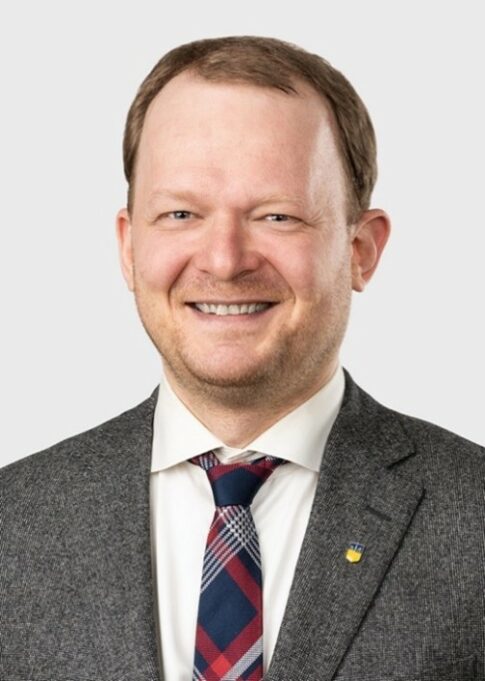
Disinformation can be a powerful tool in undermining the resolve of governments and citizens alike. But what can one do against the flood of weaponized content?
Jakub Kalenský from the Helsinki-based European Centre of Excellence for Countering Hybrid Threats has been studying these themes for years.
“My main area of expertise is Russian disinformation which I’ve been researching since 2015,” explains Kalenský who serves as the Deputy Director for the Hybrid Influence Team at the Center.
The good news is that there is a lot we can do to combat the rising wave of disinformation.
“There are many tools we can use, but often times, the scale is not big enough to achieve the best results,” says Kalenský, a native of the Czech Republic who joined the Centre of Excellence in 2022.
Toolbox for stopping lies
Over the course of his career, Kalenský has outlined “four lines of defense” in the fight against disinformation. The first line is detection and documentation: What types of tainted messages are out there? What channels are used and who is being targeted – and for what eventual aims?
“This means you must understand the information space and develop situational awareness,” says Kalenský.
The second line of defense is raising awareness of the problem. Kalenský notes that global actors such as Russia and China are very good at using many, many channels to distribute disinformation – even so-called niche channels.
“Sometimes we’re surprised at how relatively minor some of these chosen channels are – but they are all part of a bigger disinformation operation where the total disinformation volume can be vast.” Skilled disinformers also know how to reach those audiences that shun information provided by the state.
Ecosystem in peril
Third line of defense has to do with fixing the communications ecosystem which has been severely compromised in many regards. Despite the rise of malignant content, Kalenský doesn’t believe that the communications ecosystem is beyond repair.
“Finland is a great example of a country where the communications ecosystem is still very functional and reliable,” he says.
According to Kalenský, media literacy is on a high level in Finland and communications from the Government and officials are trustworthy. “In addition, there is cohesion in the Finnish society which makes it harder for harmful polarization to set in.”
Still, with social media there are always ways to spread lies and falsehoods very quickly – if people believe them. “This is why we must put pressure on social media companies so that they clean up – more effectively – disinformation that is distributed in their services.”
Fight back!
The fourth line of defense takes the fight to the aggressor: you must deter and punish the willful distributor of disinformation in some way. You should sanction the news outlets who peddle disinformation and call out bad faith actors out there, Kalenský says.
“If, for example, China or Russia say something that is not true, there are still a lot of countries that do not call them out on that,” Kalenský notes, adding that going along with a tainted narrative will only encourage similar behavior.
Kalenský points out that there are already existing laws in place to combat such things as libel or incitement to hate – but they are not used nearly enough.
“When these things are done deliberately, you should pursue also legal action.”
Getting warmed up
Kalenský will be talking about these issues at length in the Kouvola Security Conference in September, as one of the international participants of the seminar.
“It’s my first time in Kouvola and I’m very excited about it,” he says. Discussing disinformation in all its forms in Finland is very appealing, because the Finns are hardly novices to the topic.
“The level of understanding the threat is just so high in Finland.”
Jakub Kalenský is the Deputy Director of the Centre’s Hybrid Influence COI focusing on disinformation and countering of this threat. He joined the Centre of Excellence in 2022. Jakub has specialised in disinformation and Russian hybrid activities since 2015 when he joined the newly created East StratCom Task Force in the European Union’s diplomatic service, the EEAS. In the team, Jakub was responsible for raising awareness about Russia’s disinformation campaigns, and he and his colleagues founded the EUvsDisinfo campaign.

Hybrid CoE – European Centre of Excellence for Countering Hybrid Threats
- international, autonomous & network-based organization promoting a whole-of-government and whole-of-society approach to countering hybrid threats
- participation in the Centre’s activities is open to all EU and NATO countries; present number of Participating States is 36 states
- Hybrid CoE’s mission is to strengthen its Participating States’ and organizations’ security by providing expertise and training for countering hybrid threats
- Hybrid CoE’s host country is Finland and its Secretariat is located in Helsinki
